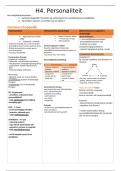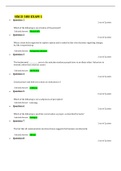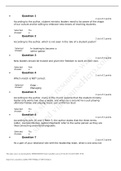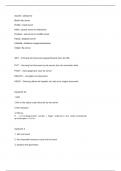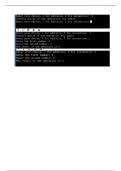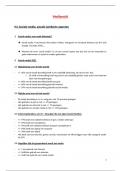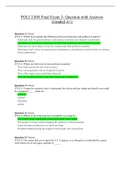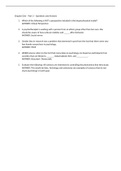Samenvatting
Samenvatting persoonlijkheid
- Vak
- Instelling
Op basis van verschillende theorieën proberen wetenschappers de onderliggende redenen van onze persoonlijkheid te verklaren, sommige meer geslaagd dan anderen. Wil jij er achter komen of jij een expulsieve anale persoonlijkheid hebt volgens Freud? Koop dan zeker dit document
[Meer zien]
